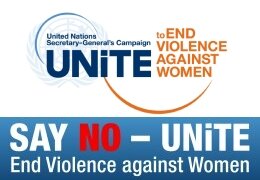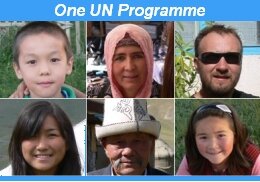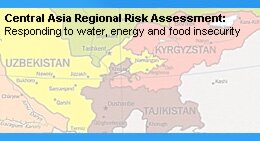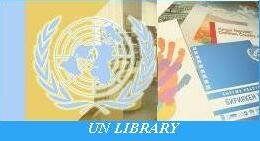|
28 March 2008, Bishkek: More than 70 child leaders representing schools in Bishkek gathered on 27 March 2008 in the Kyrgyz Parliament to meet with legislators and Tim Schaffter, the head of UNICEF.
At this unusual meeting in the Oval Hall of the Jogorku Kenesh (Parliament), deputies discussed with the children how to realize the Children’s Code (2006) in Kyrgyzstan, how the document can improve the situation of children in the country in practice, and what needs to be done to ensure that the rights of all children are unconditionally guaranteed.
“There are a number of steps that are crucial for you to take on the path to practical realization of the Children’s Code,” said Tim Schaffter, Representative of UNICEF in Kyrgyzstan in his address to participants at the meeting.
“First of all it is important to know one’s own rights and to help others find out, and then demand the realization of these rights, and also help others in this, and finally to secure from the government a report about what they are doing to ensure that the rights of children are protected, and to participate in the realization of these requirements,” said the head of UNICEF.
Kyrgyzstan is the first and so far the only country in Central Asia to have developed a Children’s Code. The document, which includes the best world practice for securing the rights and freedoms of children, was developed in the country over one and a half years with the cooperation of UNICEF. The best local and international experts in the field of child protection were included in its development. UNICEF worked with a wide range of partners including international and non-governmental organizations, academic groups, parliamentary commissions and governmental bodies in order to secure high participation and consequently the quality of this important draft law for young citizens of Kyrgyzstan, making up almost half the population of the country (48%) and to a large degree it’s most marginalized part.
For this very reason, at the stage of preliminary hearings on the Children’s Code children themselves took part in dialogue with representatives of the legislative and executive branches of power, as well as civil society and the mass media.
And for this reason the question of realization of the Code was on the agenda. “This document can be compared to a car,” Jyldyz Duyshenova, a consultant with the Kaynar NGO and someone who had been involved in the development of the Code from the very beginning, said at the meeting. “If a car is put together well, all the necessary parts are in place and it is filled up with petrol, it will drive and be useful for the driver,” she said.
Despite the fact that Kyrgyzstan is a pioneer in the development of many innovative, democratic and literate laws, as before mechanisms for their realization and especially resources for their financing remain weak. One must not say that the Children’s Code has sat all of this time on a shelf – within its framework in Kyrgyzstan, also with the cooperation of UNICEF, a wide range of laws to secure the rights and freedoms of children have been developed or are currently being developed. These include the Law of the Kyrgyz Republic on Fortification of Flour, and the Law on Juvenile Justice, and also national strategies and programmes that seek to improve the situation of children. Besides these, in the framework of the Code for the first time since independence, a Child Protection Department has been set up reporting to the Government of the Kyrgyz Republic. However, a lot still remains to be done to ensure that children in Kyrgyzstan in reality feel themselves protected by the state, and realise that they are fully protected citizens of the country and can in fact fully realise their rights, ambitions and freedoms.
It is for this reason that Kyrgyz parliamentary deputies heard many things during the meeting that reflect the reality in Kyrgyzstan, and listened to many questions that adult and experienced legislators found difficult and even impossible to answer.
“Let’s consider this case,” suggested one schoolboy, addressing the lawmakers. “A child lives in a heating pipe – he has nowhere to live and no parents. This is in itself a tragedy, but something even worse happens to him: he breaks his leg. Answer us: who should this child seek help from, and how can we, as leaders of school parliaments, help him?”
Another adolescent, the representative of a school parliament of one of the schools in Bishkek said “We understand very well what we have to do to advance the Children’s Code in schools – we will discuss the question in our parliaments, and carry out various campaigns and activities so that all pupils and their children who can’t attend school know about their rights. But what are you adults planning to do?”
The dialogue will continue. This decision was made at this unbelievable meeting of schoolchild parliamentarians and adult parliamentarians. And it is necessary that children and adults in the country know more and more about the rights and freedoms of children. And it is necessary that the lives of children in Kyrgyzstan change for the better.
“You are our hope,” Irina Karamushkina, a Jogorku Kenesh deputy and member of the Social Democratic fraction, said at the meeting. “My heart is glad that I see what an intelligent and serious generation is coming to replace us. From our side, we will do all possible to fully realise all the possibilities in the Children’s Code.”
Olga Grebennikova
Communication Officer
UNICEF Kyrgyzstan
|





















